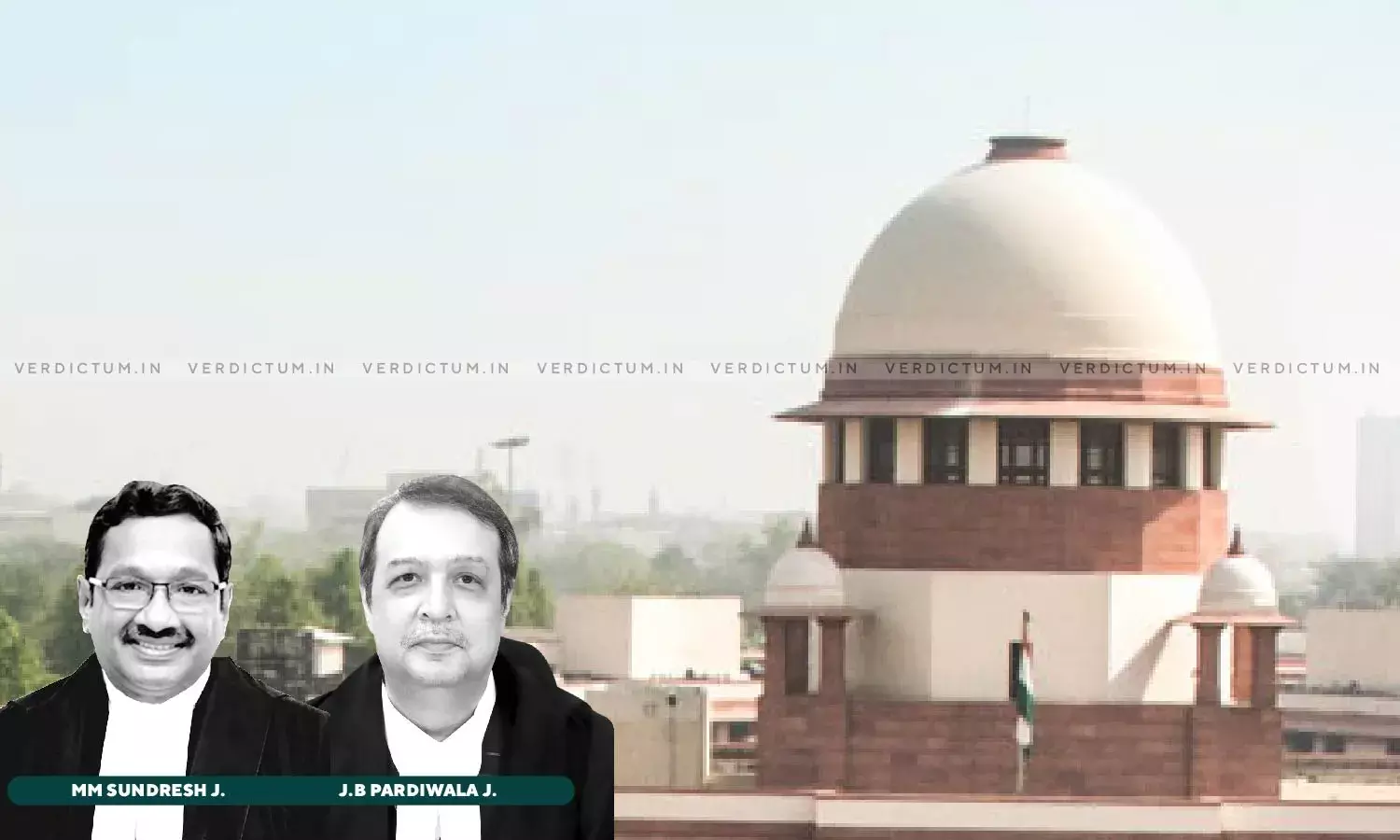Supreme Court Holds Inapplicability Of Section 50 Of NDPS Act To Search Of Bag Carried By Person; Summarises Principles

A Supreme Court Bench of Justice MM Sundresh and Justice JB Pardiwala has summarised the principles relating to Section 50 of the Narcotic Drugs and Psychotropic Substances Act, which has prescribed the conditions under which a search of persons must be conducted.
Further, the Court also reiterated that the conditions for personal search under the statute are only applicable for the search of the physical body of a person, and not for the search of any bag that the person is carrying.
Counsel Pragya Baghel appeared for the appellant, while Counsel Anil Nag appeared for the State.
In this case, the Apex Court was hearing an appeal preferred against a Judgment of the Himachal Pradesh High Court, wherein it was held that Section 50 of the Act was not applicable to the recovery from a bag.
On analysis of the existing precedent and statutory position, the Supreme Court summarised the requirements envisaged by Section 50 of the Act as follows:
(i) Section 50 provides both a right as well as an obligation. The person about to be searched has the right to have his search conducted in the presence of a Gazetted Officer or Magistrate if he so desires, and it is the obligation of the police officer to inform such person of this right before proceeding to search the person of the suspect.
(ii) Where, the person to be searched declines to exercise this right, the police officer shall be free to proceed with the search. However, if the suspect declines to exercise his right of being searched before a Gazetted Officer or Magistrate, the empowered officer should take it in writing from the suspect that he would not like to exercise his right of being searched before a Gazetted Officer or Magistrate and he may be searched by the empowered officer.
(iii) Before conducting a search, it must be communicated in clear terms though it need not be in writing and is permissible to convey orally, that the suspect has a right of being searched by a Gazetted Officer or Magistrate.
(iv) While informing the right, only two options of either being searched in presence of a Gazetted Officer or Magistrate must be given, who also must be independent and in no way connected to the raiding party
(v) In case of multiple persons to be searched, each of them has to be individually communicated of their right, and each must exercise or waive the same in their own capacity. Any joint or common communication of this right would be in violation of Section 50.
(vi) Where the right under Section 50 has been exercised, it is the choice of the police officer to decide whether to take the suspect before a Gazetted Officer or Magistrate but an endeavour should be made to take him before the nearest Magistrate.
(vii) Section 50 is applicable only in case of search of person of the suspect under the provisions of the NDPS Act, and would have no application where a search was conducted under any other statute in respect of any offence.
(viii) Where during a search under any statute other than the NDPS Act, a contraband under the NDPS Act also happens to be recovered, the provisions relating to the NDPS Act shall forthwith start applying, although in such a situation Section 50 may not be required to be complied for the reason that search had already been conducted.
(ix) The burden is on the prosecution to establish that the obligation imposed by Section 50 was duly complied with before the search was conducted.
(x) Any incriminating contraband, possession of which is punishable under the NDPS Act and recovered in violation of Section 50 would be inadmissible and cannot be relied upon in the trial by the prosecution, however, it will not vitiate the trial in respect of the same. Any other article that has been recovered may be relied upon in any other independent proceedings.
Adjudicating whether the statute will apply for the search of a bag, the Court observed that, "It is a well-settled principle in law that the Court should not read anything into a statutory provision which is plain and unambiguous. A statute is an edict of the legislature. The language employed in a statute is the determinative factor of the legislative intent. The first and primary rule of construction is that the intention of the legislation must be found in the words used by the legislature itself. The question is not what may be supposed and has been intended but what has been said."
In that vein, the Court held that the language of Section 50 of the NDPS Act is plain and unambiguous. In light of the same, the Court took the considered view that, "we are of the view that the High Court was justified in holding the appellant guilty of the offence under the NDPS Act and at the same time, the High Court was also correct in saying that Section 50 of the NDPS Act was not required to be complied with as the recovery was from the bag."
Subsequently, the appeals were dismissed by the Court.
Cause Title: Ranjan Kumar Chadha v. State of Himachal Pradesh
Click here to read/download the Judgment

